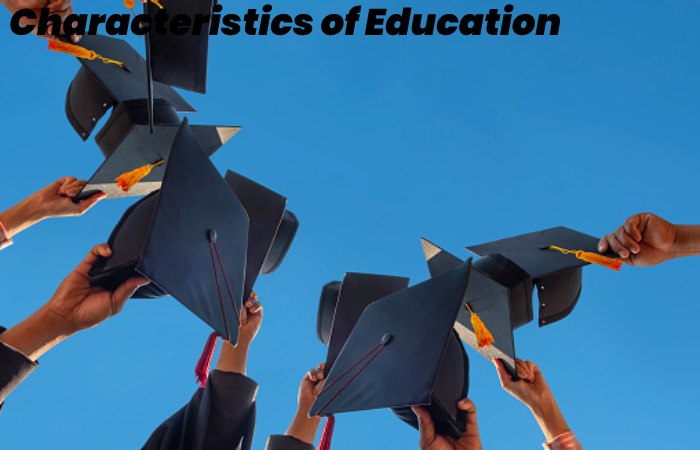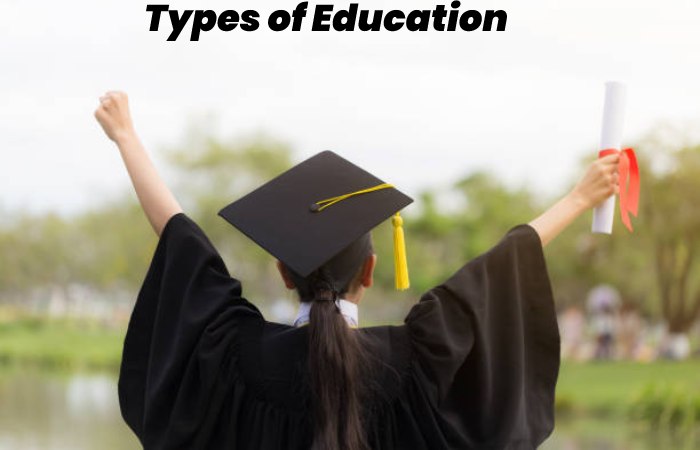Table of Contents
What is Education?
Education is called the easing of learning or gaining information, skills, values, and habits in a given human group by other people more versed in the subject taught and using various techniques of pedagogy: narration, debate, memorization, or research.
Education is a challenging course in the life of the humanoid being, which occurs fundamentally within the family and then in the diverse stages of school or academic life that the separate goes through (from kindergarten to university).
However, not only the organized and sorted knowledge of science and expertise is education: so are local traditions, family beliefs, or inborn modes of conduct.
The final consequence of the educational process is uncertain since the humanoid being never stops knowledge, therefore, changing his behaviours and teachings. However, the initial phases of life are considered vital for the formation and education of the individual (both informal aspects and in practical matters, citizenship, etc.) since they will be answerable for the way of substitute that the individual presents in his majority.
Importance of Education
Education allows the individual to acquire more excellent knowledge about his culture than if he dedicates himself to observation and imitation. Even though schooling, the individual can learn about other cultures and develop their ability to ideate and reason.
Society must operate in an environment of freedom of expression so that promote an individual’s maximum potential and not censor their abilities and skills. Otherwise, it will only be possible to educate through censorship and repression.
Characteristics of Education

Education is characterized by being:
- A right of every person.
- A social process, that is, no one can acquire outside the social sphere.
- A socialization system that allows incorporating the customs of a culture.
- A continuous learning process.
- A learning system through observation, critical rationale, and concluding on your own.
- A discipline that transmits the values and accrued knowledge of a society.
- A guide in the learning course that stimulates skills development and affects a student’s behaviour.
- Formal, informal, face-to-face, or remote, among other modes.
- Trainer of the student’s attitude.
- An instrument of the existence of the human being, from the social, expressive, and labour aspects.
- A way to promote participatory democracy.
Concepts of Education
Depending on the author consulted, teaching is defined as:
“Education consists in leading the feelings of pleasure and pain near the ethical order” – Aristotle (Greek philosopher, 384-322 BC)
“The achievement of a healthy soul in a healthy body, such as the end of education” John Locke (English philosopher, 1632-1704).
“Education has as its goal the growth in man of all the excellence that his flora transmits with it” Immanuel Kant (German philosopher, 1724-1804)
“Education is the only method to study to live for others made a habit of making friendliness prevail over personality” –Auguste Comte (French philosopher, 1798-1857)
It is the rationally conduct evolution of the specific faculties of man for his perfection and the formation of character, preparing him for separate and social life, to attain the highest possible contentment” – Rufino Blanco (Spanish educator, 1861- 1936)
“Education is a process of the broadcast of the traditions or culture of a group, from one group to another” – Fernando de Azevedo (Brazilian educator, 1894-1974)
Types of Education

There are numerous organizations of the educational act, occasionally by model or by topics of interest. However, the most crucial distinction is often the following:
Formal education: That which takes place within the program organise, plan, assess, and taught by the institutions of society: academies, schools, institutes, academies, and other instances of organic knowledge. They usually lead to obtaining a title and social recognition of the knowledge acquired.
Informal: That receive in an intentional and organic way, outside the formal institutions dedicated to it, outside the academies. And deprived of the endorsement of a degree (or having it, but without any professional value).
That is acquiring in an unintentional disorganised way through the accumulation of experience and knowledge incorporated by trial and error. Let’s say the of life,” and everybody acquires it in their way.
Types of Education According to the Sector
According to the sector that directs it can be a public cloud. Any of these two cases must correspond to the project of society protect in the legal outline of the State as a guarantor of the quality and social convenience of the project.
Public Education
Public education imparts through State institutions and usually has a formal character. Because it is of general interest, the educational service provided by the State is not for profit but instead has a strategic purpose.
As far as a primary and secondary concern, the State must provide public, accessible, and compulsory. Regarding universities, contingent on the country, the State can offer free universities or, failing that, universities requiring a significantly lower investment than private ones to favour the training and promotion of popular sectors in the professional field.
Private Education
Private is that imparted in private institutions. It can cover both initiatives in non-formal and formal and different levels of the latter (primary, intermediate, or higher). These institutions are for-profit.
By modality, we mean how delivers, whether it is formal or non-formal. It can be summed up into three essential types:
Face-to-face education is taught in a physical classroom in real-time.
Distance education or online education: formerly, it was done through a tutoring system by postal mail. Today it refers to education that is practises in virtual learning environments.
Blended education: that which combines face-to-face and distance education.
Emotional Education
Today we often hear about emotions. A new educational approach accompanies the subjects in managing their emotional skills to enable the balanced growth of their person in coherence with their concerns. The issue of dynamic is, therefore, the so-called expressive intelligence.
It allows the channelling of the processes of fear, anger, rage, and frustration and strengthening. It positive emotions in search of the subject’s well-being with himself and his environment.
Conclusion
Education can define as the course of socialization of individuals. By becoming educated, a person assimilates and learns knowledge. It also implies a cultural and behavioural awareness, where new generations acquire the ways of being of previous generations.
Knowledge extracted from books, the media, and documents, among other sources, and required. It’s a teacher or educator to transmits the information, explains it, and develops it to assess the student’s level of learning later. The home, social groups, and other links are also learning environments for the individual.

